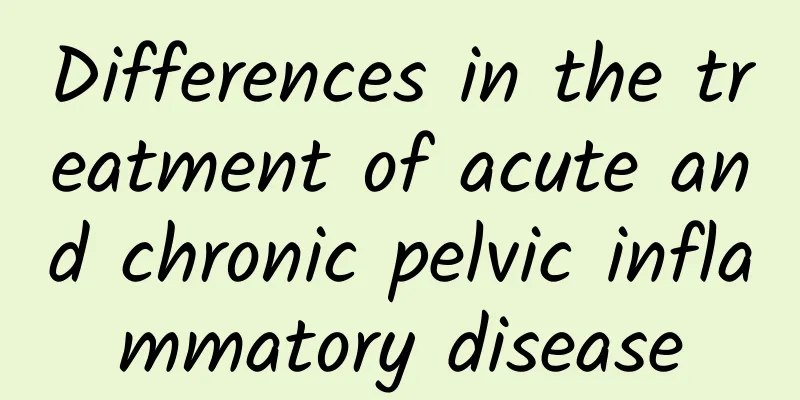How to cure pelvic inflammatory disease? There are corresponding standards

|
Pelvic inflammatory disease is a relatively common gynecological disease. After receiving treatment, there are corresponding standards for whether it has been completely cured. First, there is no more pain in the lower abdomen, and the secretions will gradually return to normal. It can also effectively reduce the chance of recurrence. If all these are met, it means that the disease has been controlled. In current clinical practice, pelvic inflammatory disease is a relatively common infectious disease, which mainly includes inflammation of the fallopian tubes and endometrium. It also includes inflammation of ovarian cysts, pelvic peritonitis, or inflammation of the fallopian tubes. Most of them will appear in one part, but they may also affect other parts, so it is necessary to actively receive treatment. So how can pelvic inflammatory disease be cured? |
<<: What are the precautions after laparoscopic surgery for ectopic pregnancy? Ensure a regular life
>>: How to take care of pelvic inflammatory disease? Pay attention to menstrual hygiene
Recommend
6 weight loss tips to help you burn fat scientifically
Losing weight is not as simple as not eating or e...
Okra helps to reduce weight and protect the stomach ~ Learn how to cook it first
Among summer vegetables, okra has a crisp, tender...
Where does the menstrual blood go in uterine adhesions?
Where does the menstrual blood go in case of intr...
Which patients with ectopic pregnancy are suitable for surgical treatment?
Which patients with ectopic pregnancy are suitabl...
What are the harms of menopause to women?
Menopause is an inevitable experience for every w...
Different types of female vaginitis symptoms lead to different characteristics of leucorrhea
Different conditions can cause different symptoms...
How to check cervical hypertrophy
Cervical hypertrophy has a certain impact on wome...
What are the consequences of abortion for pelvic inflammatory disease? Cause severe cervical erosion
In fact, in clinical practice, many women who nee...
Is surgery necessary for mild cervical erosion? What are the symptoms of cervical erosion in women?
Cervical erosion used to be a disease that troubl...
Symptoms of different types of vulvar leukoplakia
From a pathological analysis, the symptoms of vul...
The best dietary treatment for endometrial tuberculosis
Nowadays, many women are troubled by gynecologica...
How can yoga during dysmenorrhea quickly discharge blood stasis? Can yoga relieve dysmenorrhea?
Dysmenorrhea is a common problem for many women d...
The first early symptoms of uterine fibroids may be just bloating.
Since many women suffer from early symptoms of ut...
How to use Chinese patent medicine to treat pelvic peritonitis
Accountants, office clerks, editors, computer ope...
What drugs can cause amenorrhea in women?
Which drugs can cause amenorrhea in women? There ...









